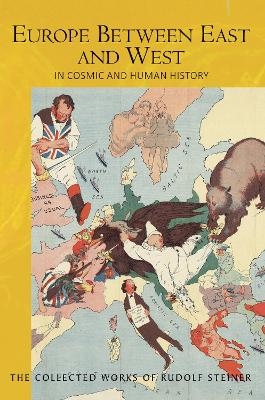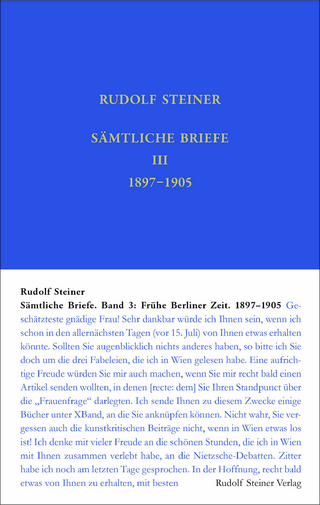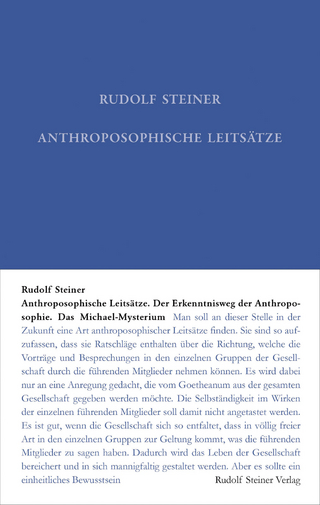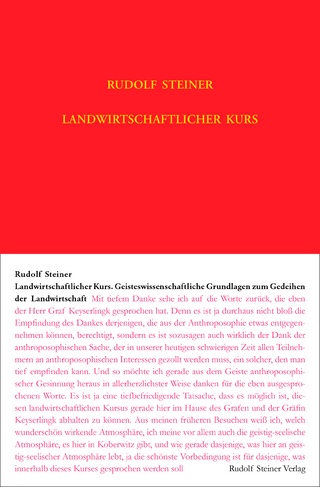
Europe Between East and West
Rudolf Steiner Press (Verlag)
978-1-85584-662-3 (ISBN)
In a broad-ranging series of lectures, Rudolf Steiner shines new light on the spiritual background to the outbreak of the Great War in Europe. Spiritual entities stand behind the various peoples of the world, he says. He describes how these beings - Folk Souls - relate to the cultural diversity of Europe, America and the East, and speaks of their individual tasks and destinies in relation to the deeper causes of the catastrophic war. Central Europe has the particular mission of mediating between the Western world, the Slavic countries and by extension the East. Steiner alleges that Western secret societies consciously suppressed the spiritual life of this central cultural region through malign activities. These same brotherhoods exploited H. P. Blavatsky's occult faculties for their own ends.
Given in Munich between the years 1914 and 1918 - and appearing in English for the first time - Rudolf Steiner addresses an array of topics in these lectures, including the potential elimination of the soul through specific medicines; intelligence testing as an expression of an ahrimanic trend; the stunted state of inner growth of many people after the age of 27; the effects in the spiritual world of those who die young; how war is an educator of selflessness; and the significance of Michael for the appearance of Christ in the etheric. The volume also features an introduction by Terry Boardman, editorial notes and an index.
Rudolf Steiner (1861-1925) was born in the small village of Kraljevec, Austro-Hungarian Empire (now in Croatia), where he grew up. As a young man, he lived in Weimar and Berlin, where he became a well-published scientific, literary, and philosophical scholar, known especially for his work with Goethe's scientific writings. At the beginning of the twentieth century, he began to develop his early philosophical principles into an approach to systematic research into psychological and spiritual phenomena. Formally beginning his spiritual teaching career under the auspices of the Theosophical Society, Steiner came to use the term Anthroposophy (and spiritual science) for his philosophy, spiritual research, and findings. The influence of Steiner's multifaceted genius has led to innovative and holistic approaches in medicine, various therapies, philosophy, religious renewal, Waldorf education, education for special needs, threefold economics, biodynamic agriculture, Goethean science, architecture, and the arts of drama, speech, and eurythmy. In 1924, Rudolf Steiner founded the General Anthroposophical Society, which today has branches throughout the world. He died in Dornach, Switzerland.
| Erscheinungsdatum | 21.05.2024 |
|---|---|
| Einführung | T. Boardman |
| Übersetzer | C. Bryan |
| Verlagsort | East Sussex |
| Sprache | englisch |
| Maße | 155 x 235 mm |
| Themenwelt | Weitere Fachgebiete ► Anthroposophie |
| ISBN-10 | 1-85584-662-4 / 1855846624 |
| ISBN-13 | 978-1-85584-662-3 / 9781855846623 |
| Zustand | Neuware |
| Informationen gemäß Produktsicherheitsverordnung (GPSR) | |
| Haben Sie eine Frage zum Produkt? |
aus dem Bereich


